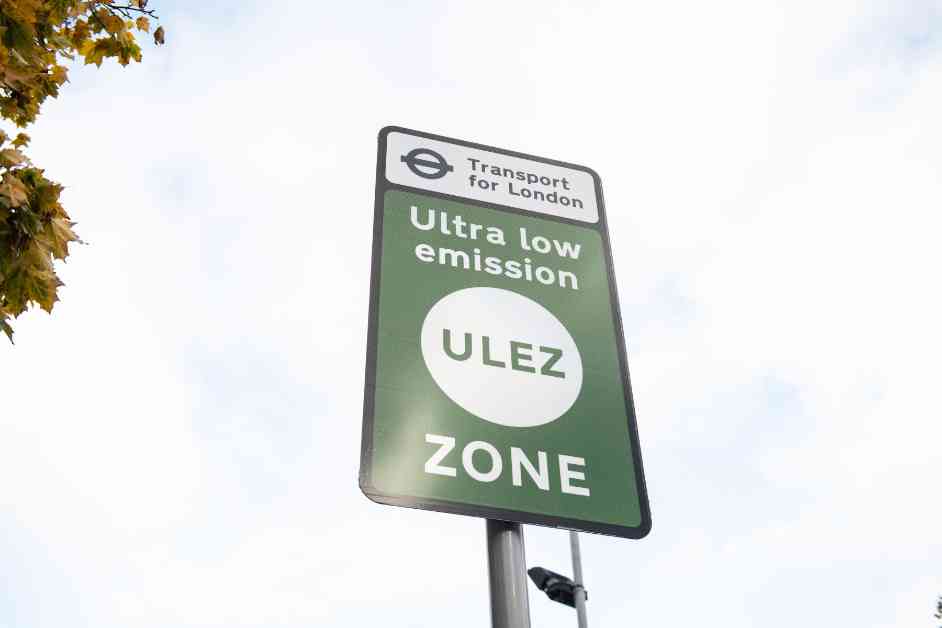Transport for London’s Revenue from Driver Fines Soars by 57%
Transport for London (TfL) has seen a significant increase in its revenue from fining drivers using major roads in the capital over the past five years. New figures reveal that TfL’s income from perceived offenses on its red route network has surged by 57% from £56.8 million in 2018/19 to £89.3 million in the 2023/24 financial year. These numbers, as reported by the PA news agency, highlight a concerning trend in the enforcement of traffic regulations in London.
The rise in revenue can be attributed to various factors, including the deployment of new and more sophisticated CCTV cameras along major roads. Additionally, TfL’s decision in January 2022 to increase the value of penalty charge notices (PCNs) from £130 to £160 has contributed to the higher income from fines. While TfL emphasizes the importance of ensuring traffic moves safely and efficiently on its network, critics argue that the authority’s focus on generating revenue through fines is concerning.
AA’s Concerns and TfL’s Justifications
Motoring organization the AA has criticized TfL for what it perceives as an overreliance on fines to maintain its financial stability. The AA’s head of roads policy, Jack Cousens, likened London’s streets to being “paved with fines” due to the substantial income generated from road traffic enforcement on red routes. He raised concerns that TfL may prioritize revenue generation over promoting compliance with road rules among drivers.
In response, TfL defended its enforcement actions, stating that compliance on red routes is crucial for maintaining traffic flow and safety. The authority issues PCNs for violations involving bus lanes, yellow box junctions, banned turns, stopping, and parking, often relying on evidence from CCTV cameras. With approximately 367 miles of red route roads in London, the average income from fines reached nearly £244,000 per mile in the 2023/24 financial year.
TfL’s director of security, policing, and enforcement, Siwan Hayward, emphasized the importance of keeping London moving safely and efficiently. She highlighted the role of PCNs as a deterrent to drivers who contravene traffic regulations, rather than a means to generate income. Hayward stated that PCNs are issued only to a small number of drivers who violate the rules, and the number of repeat offenders receiving multiple PCNs remains relatively low.
Challenges and Controversies Surrounding TfL’s Enforcement Practices
Despite TfL’s justifications, concerns have been raised regarding the transparency and fairness of the authority’s enforcement practices. In May 2023, a panel of adjudicators advised TfL to refrain from issuing fines based on camera evidence that accused drivers of illegally stopping on red routes without single or double lines, citing a contradiction with government guidance. While a judicial review later ruled in TfL’s favor, questions remain about the handling of appeals and representations by drivers contesting fines.
The AA’s research revealed that TfL does not contest the majority of appeals from drivers issued fines for stopping on red routes, raising doubts about the efficacy of the appeals process. Drivers often feel compelled to pay fines within 14 days to benefit from the reduced rate of £80, even if they have reservations about the validity of the charges. This behavior, as highlighted by the AA, suggests that TfL may rely on drivers’ compliance with fines to maintain its revenue stream.
Ms. Hayward reiterated that TfL handles representations and appeals fairly and in accordance with the rules. She acknowledged that claims at the appeals stage may go uncontested due to additional evidence provided by drivers to the tribunal. However, concerns persist regarding the transparency of TfL’s enforcement decisions and the impact on drivers’ trust in the system.
Nationwide Trends in Road Traffic Enforcement
The increase in revenue from bus lane enforcement in English councils outside London further underscores the growing reliance on road traffic fines as a source of income for authorities nationwide. From £46.8 million in 2022/23 to £54 million in the following year, the income generated from enforcing traffic regulations highlights a broader trend in turning enforcement activities into a significant revenue stream for local authorities.
As the debate continues on the balance between maintaining road safety and generating revenue through fines, stakeholders, including TfL, the AA, and drivers, must engage in constructive dialogue to address the challenges and controversies surrounding traffic enforcement practices. The transparency, fairness, and effectiveness of enforcement actions will play a crucial role in shaping the future of road traffic management in London and beyond.





















